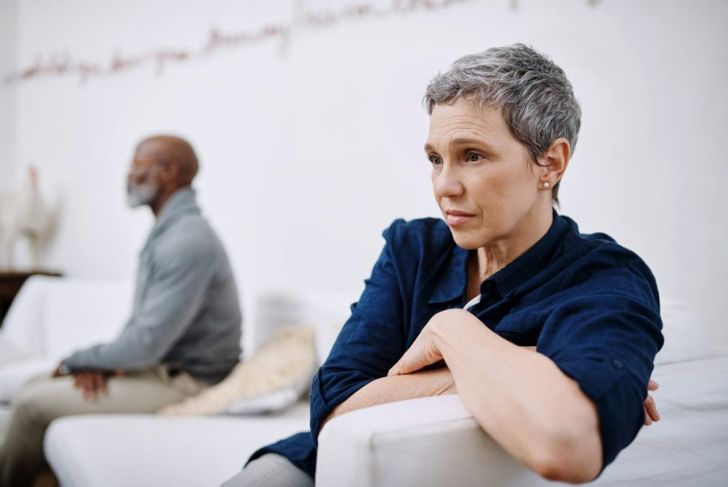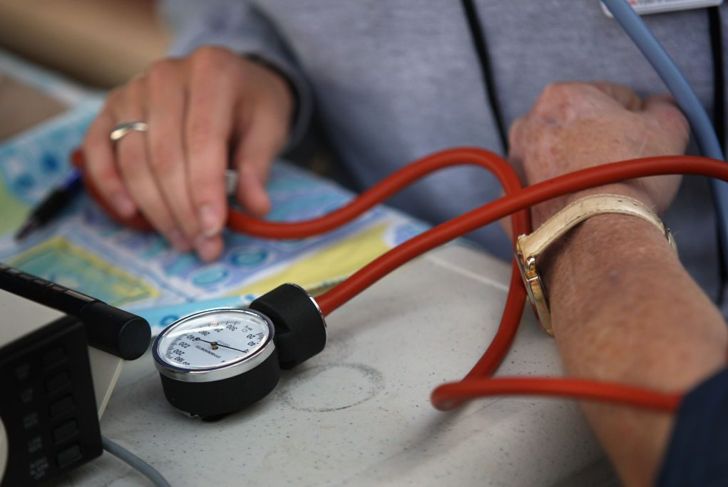The benefits of marriage are well-documented. Decades of research show that a good marriage is generally beneficial to overall health. Unfortunately, divorce can negatively affect mental and physical health and even increase the risk of mortality. Divorce correlates with lower than average life expectancy for men and women. The divorce process can be traumatic and extremely stressful. The person that was once a buffer from the stress of the outside world and a source of comfort may turn into an opponent. While it is always better to leave a bad relationship than to stay, emotional turmoil and adjustments to drastic life changes can continue long after the divorce itself is finalized.
Stress
Financial hardship and lifestyle changes are possible consequences of divorce. These consequences may damage overall health, but many medical professionals believe chronic stress is the most devastating consequence of all. It causes the constant production of cortisol and other hormones that interfere with the body’s functions. Long-term stress causes anxiety, depression, insomnia, digestive issues, memory, and cognitive impairment, and many other physical and psychological effects. Unrelieved chronic stress also impairs the body’s ability to fight off pathogens and repair damaged cells. Relaxation techniques such as yoga, meditation, and art or music therapy may help relieve stress. Plan regular activities to give yourself something positive to anticipate. Socializing with friends and family may also ease stress, and professional counseling can help an individual develop healthy coping skills.
Depression
Divorce frequently causes depression. People with a history of depression can contact their doctors and other health care providers for assistance. Medical professionals help people develop coping strategies and may recommend medication or other interventions. Almost everyone develops situational depression during a divorce, a natural reaction to grief and loss. Socialization and reaching out to friends and family can limit the intensity and duration of situational depression. Learning a new skill, spending time on new hobbies or existing interests, and exercising can also help.
Weight Gain or Loss
Personal reactions to stress, anxiety, and depression influence weight fluctuations. Some people turn to comfort foods to cope, which are often full of fat and carbohydrates, and overeating leads to weight gain. Excess weight is a risk factor for diabetes, heart disease, and many other health issues. Divorce can also lead to weight loss and malnutrition. A person going through a breakup may lose their appetite or feel sick and nauseous. Sometimes aversions develop because specific foods trigger upsetting memories. Planning a healthy diet is one way to cope during this transition. Create meal plans and portioned snacks to minimize the risk of unintentionally eating too much. Food journals can help people identify areas that need improvement.
Anxiety
Very few people experience a divorce without anxiety. Severe anxiety can cause physical symptoms including nausea, vomiting, headaches, dizziness, digestive problems, high blood pressure, and worsening of existing health problems. Anxiety stems from finances, relocation, child custody, and dividing assets such as a home, vehicles, and other possessions. Abstract worries include meeting future financial obligations, navigating mutual relationships, and loneliness. Anxiety thrives on uncertainty. By researching the divorce process and contacting appropriate professionals, an individual can ease their anxiety by feeling more prepared. Plan for future events as much as possible. Prepare for the worst, but dismiss unrealistic fears of catastrophic outcomes — talking to a friend or therapist can help you identify and dismiss illogical fears. Consult a medical professional for help with severe or long-term anxiety.
Sleep Deprivation
Sleep deprivation occurs when people do not have enough time to sleep. Chronic lack of sleep weakens the immune system, increases the risk of cardiovascular disease, causes irritability or mood swings, and affects physical and mental health in many other ways. Parents have separate households after divorce. Childcare, household tasks, and work obligations fall on one person at a time, instead of two. Divorce without children may involve new jobs or increased work hours. Cleaning, cooking, shopping, paying bills, and other tasks that were shared become one person’s responsibilities. Create daily, weekly, and monthly schedules that include sleeping seven to eight hours per day. Combine errands that can be done in the same place and buy groceries and household essentials in one large order instead of frequent trips. Don’t hesitate to reach out to friends and family for assistance.
Insomnia
Acute adjustment or transient insomnia occurs when people experience drastic changes and extreme stress. This type of insomnia occurs during divorce, but it can turn into chronic insomnia that persists for months or years. Anxiety, depression, and difficulty sleeping also contribute. A bedtime routine may alleviate insomnia. Ideally, go to bed at the same time each night, and do not watch TV, play games, or use a phone in bed. Use a printed book or dedicated e-reader that does not emit blue light if reading is part of the bedtime routine. Avoid alcohol, caffeine, and sugar for three hours before bedtime. Perform sleep readiness tasks such as oral hygiene, showering, changing into comfortable pajamas, and turning off lights in the same order every night so the body learns that these steps precede sleep.
Increased Risk of Heart Attack
Research has found that divorce is associated with an increased risk of a heart attack. The risk for women is higher after a first divorce and increases even more after a second. No increased risk of heart attack was observed in men with only one divorce, but men’s risk increased after a second divorce. Studies also associate a higher risk of coronary artery disease or CAD in women who have gone through a divorce. No increased risk of CAD is associated with divorced men. The reasons for this increase are not entirely clear. Some researchers theorize that the financial and emotional stress of divorce contributes to an increased risk of cardiovascular disorders, but this theory lacks conclusive evidence. Men and women should avoid tobacco, eat healthy foods, and exercise regularly to decrease these risks.
Alcohol and Substance Abuse
Alcohol and substance abuse are sometimes associated with divorce. A substance use disorder can develop during or after a divorce as a means of self-medicating and coping with emotional distress. People using recreational drugs or drinking excessively before a divorce may increase use significantly afterward. Drug and alcohol use can lead to declining overall health, poor job performance or job loss, and legal ramifications including child custody. Consult a doctor or other medical professional for help with depression, anxiety, and other mental health issues. Many different types of drug and alcohol treatment programs are available. Seeking help early can increase the chance of successful recovery.
Risk of Diabetes and Cancer
Numerous studies show a correlation between divorce and the risk of developing diabetes or cancer. Dietary changes may be part of the reason for this. Additionally, in some marriages, one spouse handles appointments, paperwork, medication management, and other tasks related to medical care for the entire family. The spouse with no experience managing medical care should gather medical information and contact information for health providers before the divorce is finalized, to ensure they understand and take action related to any pre-existing conditions for themselves or their children.
Health Insurance After Divorce
Health insurance and medical care are essential for good health, but one spouse may lose their coverage after a divorce. Sometimes people stop taking prescribed medications because they can not afford refills or forget due to mental health issues such as depression. Many serious conditions can be detected early, but people may skip tests for numerous reasons. If possible, arrange enrollment in a new plan or have an alternative in place before an ex-spouse’s plan drops your coverage.

 Home
Home Health
Health Diet & Nutrition
Diet & Nutrition Living Well
Living Well More
More




















